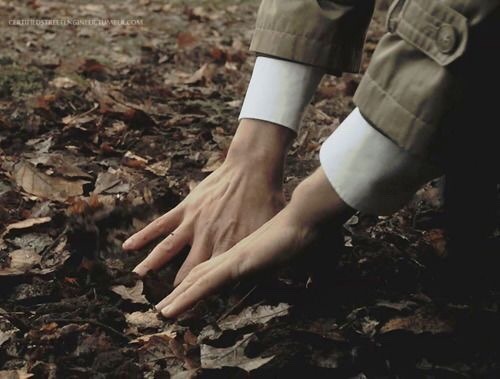Alittleanxiousbadger - A Little Anxious Badger


More Posts from Alittleanxiousbadger and Others
“I opened my mouth, almost said something. Almost. The rest of my life might have turned out differently if I had. But I didn’t.”
— Khaled Hosseini
patiently waiting for fall like




by Riiiiiii
GOOD STUDYING VS BAD STUDYING
GOOD STUDYING
Use recall. When you look at a passage and try to study it, look away and recall the main ideas. Try recalling concepts when you are walking to class or in a different room from where you originally learned it. An ability to recall—to generate the ideas from inside yourself—is one of the key indicators of good learning.
Test yourself. On everything. All the time. Flashcards are your best friend. Use quizlet if you don’t want to hand-make flashcards. Get somebody to test you on your notes.
Space your repetition. Spread out your learning in any subject a little every day, just like an athlete. Don’t sit and study one subject for 2 hours, do half an hour every day.
Take breaks. It is common to be unable to solve problems or figure out concepts in math or science the first time you encounter them. This is why a little study every day is much better than a lot of studying all at once. When you get frustrated, take a break so that another part of your mind can take over and work in the background. You need breaks in order for your brain to retain the information. Try the Pomodoro method if you have trouble timing breaks!
Use simple analogies. Whenever you are struggling with a concept, think to yourself, How can I explain this so that a ten-year-old could understand it? Using an analogy really helps. Say it out loud, like you’re teaching it, whether it’s to an imaginary class or your sister who couldn’t care less. The additional effort of teaching out loud allows you to more deeply encode.
Focus. Turn off your phone / iPad / any distractions and clear your desk of everything you do not need. Use apps like Forest if you can’t stay off them!
Do the hardest thing earliest in the day, when you’re wide awake and less likely to push it aside.
BAD STUDYING
Avoid these techniques—they can waste your time even while they fool you into thinking you’re learning!
Passive rereading—sitting passively and running your eyes back over a page. This is a waste of time, frankly, and doesn’t do anything to help information pass into your brain without recall.
Over-highlighting. Colouring a passage of text in highlighter isn’t helpful at all. It’s good for flagging up key points to trigger concepts and information, but make sure what you highlight goes in.
Waiting until the last minute to study. DON’T CRAM!!!
Doing what you know. This isn’t studying! This is like learning how to juggle but only throwing one ball.
Neglecting the textbook. Would you dive into a pool before you knew how to swim? The textbook is your swimming instructor—it guides you toward the answers.
Not asking your teachers for help. They are used to lost students coming in for guidance—it’s their job to help you.
Not getting enough sleep. Your brain practices and repeats whatever you put in mind before you go to sleep, as well as retaining information and repairing itself. Prolonged fatigue allows toxins to build up in the brain that disrupts the neural connections you need to think quickly and well.

me, all the time: i could just die and not have to do this
me: [walks into a psychic’s shop and slams down my tarot cards] it’s time to duel

☁️ 10 tips on studying when your motivation’s nowhere to be found
i got an ask about this yesterday and decided to turn my reply into a post because having trouble focusing when you’re super unmotivated is really common, so i thought more people might find this helpful :) buckle up kiddos, this is gonna be a long one!
1. i want you to remember that this is a universal experience.
every student out there struggles like hell sometimes, and that’s completely normal; you’re not a machine and that means you can’t possibly churn out work 24/7 without burning out. so try not to beat yourself up too much okay, you’re doing great!
2. take a deep breath and identify the reason you’re feeling like this
are you burnt out because of stress or overworking yourself? are you overwhelmed by the amount of tasks on your plate? is there a particular assignment or exam scaring you to the point where you don’t want to start studying? these are all normal reasons for lack of motivation and knowing the why will help you figure out the how - you gotta know the problem to solve it.
3. i know you feel like you’re months behind, but start small
small achievements accumulate. repeat this sentence to yourself daily, write it on a sticky note and keep it on the wall above your desk (it’s exactly what i did). break up daunting tasks into smaller ones; got a billion formulae to know by heart? memorise 3 every day (you’ll have memorised more than 20 by the end of the week!). got a long chapter to study? divide it into smaller chunks and just focus on 1-3 pages a day. slow and steady, you can do it
Seguir leyendo









Dark Academia Moodboard☂️.
Palmistry
Palmistry placements may indicate certain natural traits or abilities related to the person.

The fingers
Long: Very sensitive.
Short: Sharp inteligence, intuitive.
Fat: Sensual.
Thin: Analitycal, curious.
Smoth: Inspirational, artistical.
Knotty: Love of detail and analysis.
Conical: Poetic, imaginative.
Pointed: Subtle.
Square: Decisive, serious, positive.
Spatula: Realistic, positive outlook.
Round: Gifted, intuitive.
Large palm+ short fingers: Materialism predominates.
Short palm + large fingers: Cerebral activitie predominates.
Marks
Can appear in all the palm
Star shape: favorable.
Triangle shape: know-how.
Cross hatch: obstacle.
Rectangle: protection.
Cross: deception.
Circle: lack of success.
Chain lines: fatigue.
Island shape: weakness.
Aspects
Broken lines indicares change of destiny.
Parallel lines indicates a certain duality.
If some line is missing can mean that line corresponding caracteristic doesn't apply to you.
Fine lines represents sensibility and intelectual qualities.
If they are deep and red, you have more volatile nature.
If they are pink, detonates sentimentalism and reserve.
If they are pink, detonates sentimentalism and reserve.
If pale and superficial, you lack resistence.
If darke yellow or brown, they reveal resistence and firmness.
Lines
Life line: the longer your life line, the longer you will live.
Head line: if the head line starts with the life line it means you have good control. If the head line drops sharply down, it indicates that you have little power of resistance. Long, strong head line means you are inteligent.
Heart line: a strong line means you have a warm personality. A weak line means you are rather cold. Each small line attached means a moment of attraction towards someone, a flirtatious momento or an affair.
Marriage line: the number of lines means several romances. The closest to the base of the finger, the later in life those marriages will take place. A fork at the end towards the palm means separation. A fork at the begining will mean a long engagement. Little lines, don't crossing the line means children into the marriage.
Neptune line: a neptune line means you have imagination. If it starts in the life line, means a tendency of drugs and alcohol. A broken neptune line means criminal tendencies.

Shape of palms
Conical hand: a long palm with fingers that form a point. Associated with the element fire, this hand type is drawn to beauty and is imaginative by nature. This hand can also suggest a desire to be a succes. (Bottom and edges are all relatively flat, with rounded fingertips)
Oval hand: a broad palm with saucer-like fingertips. People with this hand shape are often thoughtful and introverted, with logical and analitycal nature. They have a tendecy of being loners (palm and fingertips are round)
Square hand: a square palm with blunt, broad fingertips. People with this hand shape tend to be practical, organized and persistent. Can be cynical or sceptical, and to value material goods. (Square hands tend to have very straight edges)
Pointed hand: a long, delicate hand with pointed fingers. People with this hand type tend to be dreamers and idealists, who hold strong beliefs and views. They have a tendency to be nervous or over emotional. (psychic hands are bony and delicate)
Spatulate hands: this hand is often flabby or soft, widest at the bade of the palm with broad, straight fingers. It can indicate and energetic and enthusiastic nature, always searching for answers and new stimull. (Spatulate hands tend to be very flabby and look clumpsy)

🌙
-
 gammmaknife reblogged this · 4 weeks ago
gammmaknife reblogged this · 4 weeks ago -
 girlwhoisinfactthepr0blem liked this · 3 months ago
girlwhoisinfactthepr0blem liked this · 3 months ago -
 gargoylesstandingonsuperheroes liked this · 1 year ago
gargoylesstandingonsuperheroes liked this · 1 year ago -
 vulnerableparts reblogged this · 1 year ago
vulnerableparts reblogged this · 1 year ago -
 harvestar reblogged this · 1 year ago
harvestar reblogged this · 1 year ago -
 jamalexlee reblogged this · 1 year ago
jamalexlee reblogged this · 1 year ago -
 una-sensual-tostadoraxdd liked this · 1 year ago
una-sensual-tostadoraxdd liked this · 1 year ago -
 aradiantsun reblogged this · 2 years ago
aradiantsun reblogged this · 2 years ago -
 paradox-of-pisces reblogged this · 2 years ago
paradox-of-pisces reblogged this · 2 years ago -
 bittersweetbetween reblogged this · 2 years ago
bittersweetbetween reblogged this · 2 years ago -
 spilledicedmacchiatos reblogged this · 2 years ago
spilledicedmacchiatos reblogged this · 2 years ago -
 thejessica reblogged this · 2 years ago
thejessica reblogged this · 2 years ago -
 micaanne liked this · 2 years ago
micaanne liked this · 2 years ago -
 kunoichi-of--destiny liked this · 2 years ago
kunoichi-of--destiny liked this · 2 years ago -
 softlittleheartsandsparkles reblogged this · 2 years ago
softlittleheartsandsparkles reblogged this · 2 years ago -
 oasismental liked this · 2 years ago
oasismental liked this · 2 years ago -
 pumpkinsae liked this · 2 years ago
pumpkinsae liked this · 2 years ago -
 2-o liked this · 2 years ago
2-o liked this · 2 years ago -
 nola-aiwe liked this · 2 years ago
nola-aiwe liked this · 2 years ago

170 posts